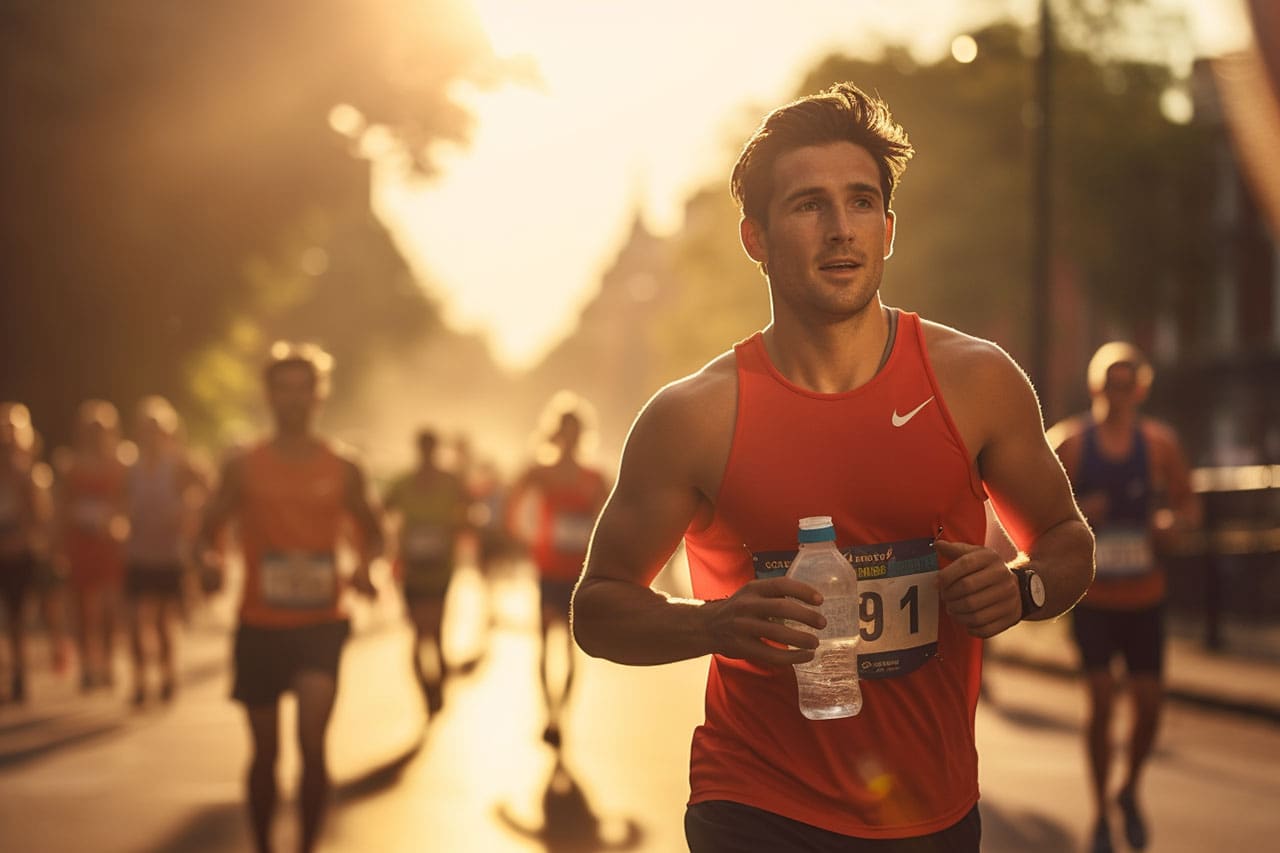7 Proven Strategies for Stellar Half Marathon Hydration
By admin••12 min read

Tags
hydrationnutritionpre-racerace-daywater
Related Articles
Mastering Race Day Nutrition: Fueling for a Successful Half Marathon
Running a half marathon is no small feat, it requires not just physical and mental preparation, but also a solid nutrition plan to fuel...
22 min read
Maximizing Aid Stations: The Complete Guide to Race Day Hydration and Fueling Success
Master the art of aid station efficiency with this comprehensive guide. Learn professional techniques for hydration, fueling, and navigation that can save minutes off your half marathon time while keeping you properly fueled.
11 min read
Conquering Your First Half Marathon: Top Race Day Tips
Ah, the half marathon. Thirteen point one miles of pure pavement pounding pleasure. I remember my first one. I was excited, nervous, an...
3 min read
The Half Marathoner's Race Day Guide: What to Expect and How to Succeed
Conquer your half marathon with confidence! Discover expert tips on race day expectations and strategies for success in our comprehensive guide.
28 min read